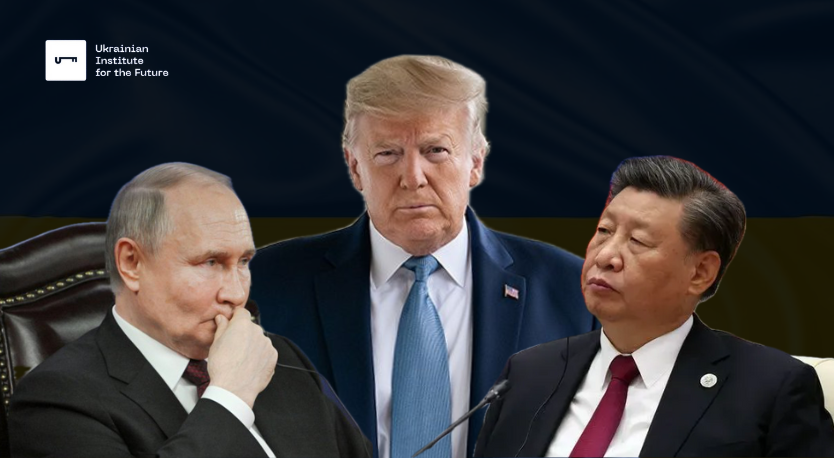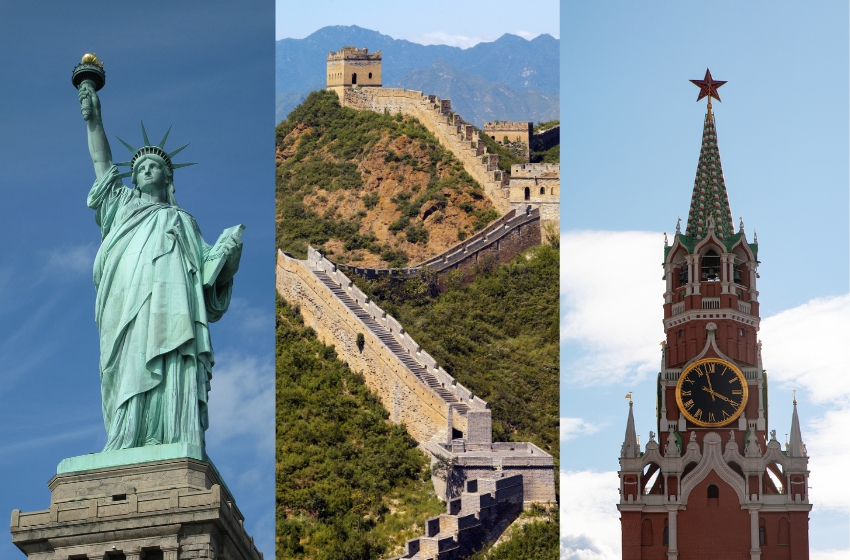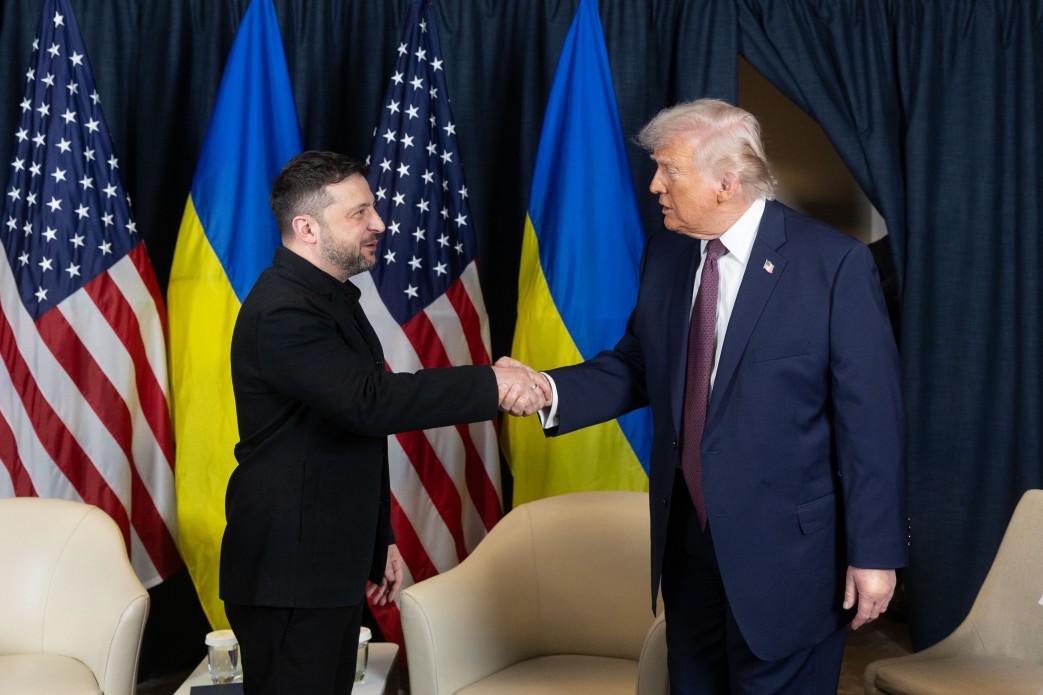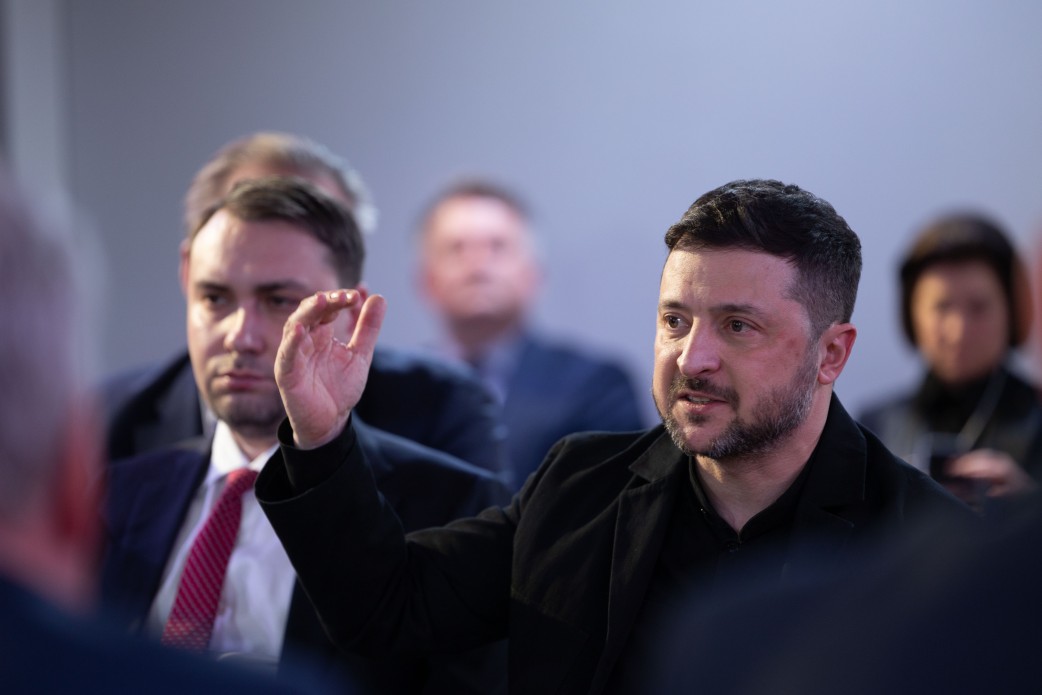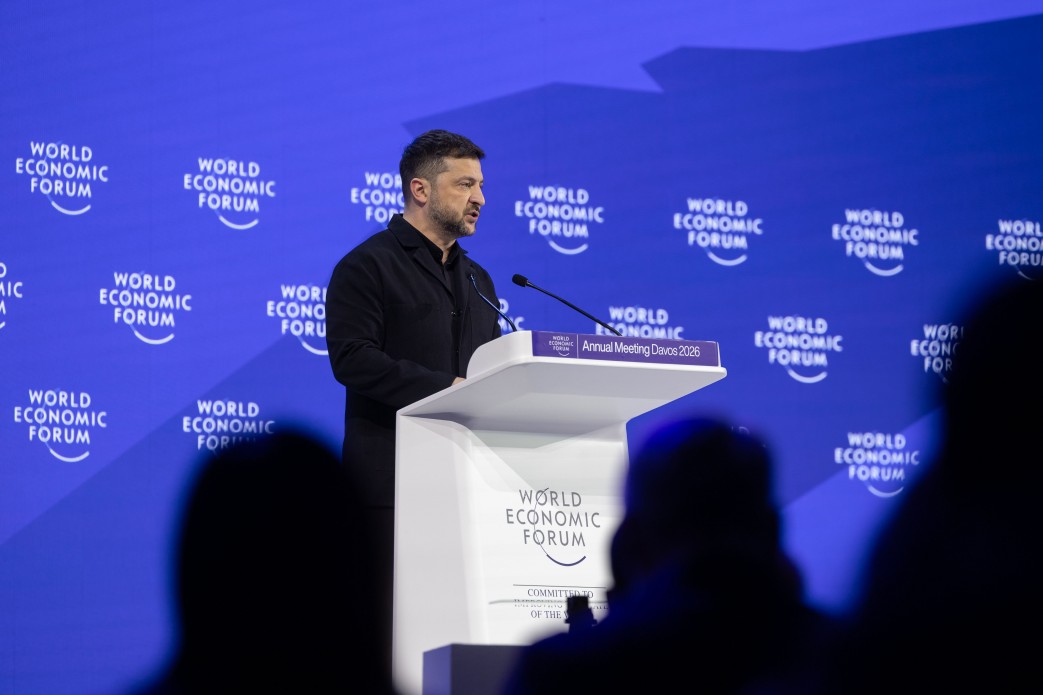By Igar Tyshkevich, Expert in Programmes for International and Domestic Policy of the Ukrainian Institute for the Future (UIF)
The surroundings of Donald Trump, even before the official announcement of the US election results, outlined several scenarios for ending the war in Ukraine, including the possibility of freezing the conflict at its current stage. During the election campaign, two main ideas were discussed: the "Heritage Foundation's thesis," which advocated for increased support for Ukraine and forcing Putin into concessions, and the "America First Policy Institute's thesis," which proposed freezing the conflict along the frontline. Recently, the second option has gained more attention.
Both of these "plans" involve starting negotiations between Ukraine and Russia without the implementation of a return to the 1991 borders. The difference lies in the fact that the more active approach involves changing the balance on the frontlines and negotiating with the Kremlin from a position of strength, which could allow for a return to the borders in a political context. The second approach proposes an immediate freezing of the conflict with the understanding (but not necessarily the acknowledgment) that the return of territories is not possible in the near future, focusing on ideas like "forgetting about Crimea" or "waiting for changes in Russia."
Meanwhile, Russia is intensifying its pressure on the frontline. Despite significant losses, its army has achieved the largest successes since 2022, although it has not broken through the Ukrainian front. Speaking at Valdai, Putin mentioned the "Istanbul agreements," effectively emphasizing a Russian ultimatum to Ukraine, although he acknowledges the problems that force the Kremlin to expedite negotiations. Among the main reasons:
- The growing technological gap between Russia and developed countries, including not only Western states but also parts of the "Global South."
- The increasing dependency of the Russian economy on China, especially in the technological and financial sectors, which resembles Belarus's long-standing dependence on Moscow, but now Beijing acts faster and more effectively.
- The loss of Russia's geopolitical influence, where Central Asia is becoming part of the "Chinese world," Turkey's influence is growing in the Caucasus, and in the Balkans, Russian interests are giving way to China's and Turkey's.
- Demographic changes within Russia, where the Russian population is shrinking, and growth is driven by national autonomies and migration.
These trends have led to Russia losing leadership in the SCO and failing to assert its role as a leader in BRICS. An analysis of the Valdai Club report and Putin’s speech indicates a shift in Russia’s positioning: even on its own platform, Russia no longer appears as a leader driving change. Russian representatives often speak of a multipolar world, but they do so within collective "non-Western" formats, without emphasizing the country’s exceptional role, which effectively reduces its status to that of a regional leader rather than a global one.
The latter—Russia's self-positioning—is a key element in understanding the policies of major world players regarding the end of the war in Ukraine. Putin began this phase of the war as part of a strategy to preserve Russia’s status as one of the world's leading powers. Economically, Russia has long since fallen off the list of leading global states, technologically it is lagging behind, and its political influence has gradually diminished. The only remaining trump card was military might. This was the card Putin played, hoping for a quick victory. Had the "Kyiv in three days" scenario succeeded, Russia would have regained influence in the Caucasus, Central Asia, and strengthened its positions in the Balkans and Africa, forcing the world to view it as one of the key architects of the new world order.
However, the "Kyiv in three days" scenario did not happen. Russia faced resistance from a state it had itself tried to position as a "failed state." Putin demonstrated that his "final trump card" in the dialogue about geopolitical leadership was not as strong as expected. While in 2021, discussions revolved around a possible Washington-Beijing-Moscow triangle, by the end of 2022, the dialogue shifted to a conversation between the PRC and the USA. Russia itself withdrew from this process. Therefore, Putin’s words in January 2023 that the war was about “Russia’s future” turned out to be true. A defeat or even a conditional "draw" in the war with Ukraine would strip Russia of its status as a key geopolitical player.
This situation suited both Beijing and Washington. For them, it was much easier to build a bipolar world than to maintain a complex three-party dialogue. This also aligned with the interests of the European Union, which gained additional opportunities on the world stage due to the weakening of Kremlin influence. The weakening of Russia was beneficial to new regional leaders such as Turkey, Iran, and Saudi Arabia, as well as to BRICS countries (excluding Russia).
Thus, a complete defeat of Ukraine was not, and still is not, in the interest of most countries in the world. However, "not losing" does not equate to "winning."
A complete defeat of Russia and the associated risks of a deep crisis within Russia, up to the threat of collapse, remain unfavorable to key global players:
- For the US, the collapse of Russia would mean destabilization in several regions at once, which would either strengthen China’s influence or force the United States to return to an expensive “world policeman” policy without guarantees of success, increasing risks in security and escalation with China.
- For China, Russia is important as a single, relatively manageable state, acting as a regional (but not global) leader with a high dependence on China.
- Some EU politicians share China's vision of Russia as a single, sufficiently powerful state. The difference is that the EU is more concerned with the risks of Chinese influence over Russia, which is certainly an undesirable development for Europe.
- For most non-Western countries, especially regional leaders, the preservation of a relatively strong Russia (but without ambitions for geopolitical leadership) is also important.
Thus, a significant portion of the world’s countries sees Russia's defeat as "unfavorable." This position is changing: while two years ago it was considered unacceptable, now it is viewed as simply unfavorable, though changes are happening slowly. Ukraine has some responsibility here, as it does not sufficiently communicate about "post-war" issues, particularly concerning the consequences of Russia's defeat and how to mitigate the associated risks.
Let's consider the US-China pair. Both countries do not want Ukraine to lose, but at the same time, neither seeks a complete collapse of Russia. From their perspective, the war should end somewhere between these extremes. The question is: where exactly? It is worth recalling the US-China confrontation and the growing dependence of Russia on China.
-
For Beijing, the ideal moment to end the war is the beginning of negotiations after Russia’s economy has reached the “point of no return” in its technological and financial dependence on China. This means when even the lifting of all sanctions would not allow Russia to return to its predominant use of European and American technologies and financial instruments.
-
For the US, such a scenario is a nightmare, as it would mean that China gains access to Russia’s resource base, Arctic logistics, and significantly strengthens its influence in the Middle East and Africa. Therefore, the ideal moment for the US to negotiate or freeze the war is “five minutes before the point of no return,” when Russia has not yet fully embraced China. This would allow the US to maintain a beneficial level of competition between Russia and China for spheres of influence, perhaps indirectly through intermediary states.
Thus, the positions of external players regarding the Russia-Ukraine war partially depend on the level of US-China relations. The countries are approaching a full-blown trade war, yet the economies of the US and China are interdependent, as evidenced by the volumes and structure of their trade. Given China’s increasing influence, conflicts are inevitable, particularly in the field of new technologies, where competition is "incurable": in the transition to a "knowledge economy," the country that retains a technological edge turns it into political and economic influence. At the same time, both countries understand the need to find a format for future coexistence.
It is relevant to recall the role of Trump, under whom the active phase of confrontation between Washington and Beijing began. Tensions had been building for years, and one of the triggers in 2017 was China’s shift to a "green" course, when Beijing stopped accepting plastic waste from the US and EU (which made up 60% of US plastic waste). Donald Trump quickly embarked on an Asian tour (which he repeated in 2019). After an unproductive meeting with Xi Jinping, China became a threat, and Vietnam, which agreed to accept the waste, gained a “good” reputation.
Today, paradoxically, Trump may return to his favorite “ping-pong diplomacy,” but with a different approach. It is not about restoring relations, as it was in the 2010-2015 period, but rather about creating cooperation frameworks while maintaining competition in the technological sphere. This format could find support among many of his sponsors, including Elon Musk, who is interested in Chinese materials and products, as well as in the Asian market for his goods. After all, it is in China that Tesla's gigafactory operates, and the expansion of this factory was postponed by Chinese leadership in 2023.
Thus, there is a high likelihood of a quick visit by Trump to Asia after his inauguration, and the results of this visit could significantly influence the US administration's position on ending the war in Ukraine. A successful dialogue between Trump and Xi (though an unlikely scenario) could lead to joint pressure from China and the US on Russia and Ukraine. If Ukraine skillfully builds communication on both fronts, it could create conditions for political concessions from Russia, particularly on the issue of territorial return, without creating a "defeat image" for Russia. However, if Putin remains uncompromising, the US may begin to act according to the Heritage Foundation scenario, known in the Ukrainian press as "Pompeo's position."
The continuation or intensification of the confrontation between the US and China may force Washington to look for ways to “freeze” the conflict with Russia, using the restoration of cooperation with Russia as a tool to pressure China. At the same time, a “defeat of Ukraine” is unacceptable for the US. If Putin's peace conditions are unacceptable, a harsher stance from Trump is possible. Will Beijing then become more actively involved in the war in Ukraine? This is unlikely: China does not want to bear additional security costs or enter into a conflict that could escalate into a confrontation with the US.
The prospect of war escalation is alarming for both Beijing and Washington. Russia’s involvement of the North Korean army creates challenges for both capitals, increasing the risk of confrontation between China and the US. Moreover, Putin is playing on multiple fronts: aside from the North Korean issue, there is nuclear blackmail, destabilization in the Middle East, and activity in Africa. In Ukraine, this could lead to the worst-case scenario — major concessions from Russia.
However, as in 2022, Putin's expectations may prove to be misguided, as both Washington and Beijing strongly desire to prevent Russia from gaining more influence. Thus, excessive pressure from Russia may, in fact, prompt the US and China to come to an agreement.
What does this mean for us? It is quite likely that 2025 will be the year of a ceasefire agreement. The conditions of this agreement will depend on our flexibility and ability to see the bigger picture. Will Ukraine’s leadership be able to propose an adequate vision for the post-war order in the region and Ukraine’s position regarding key global centers of influence? There is time and opportunity for this.
